Applied Mathematics
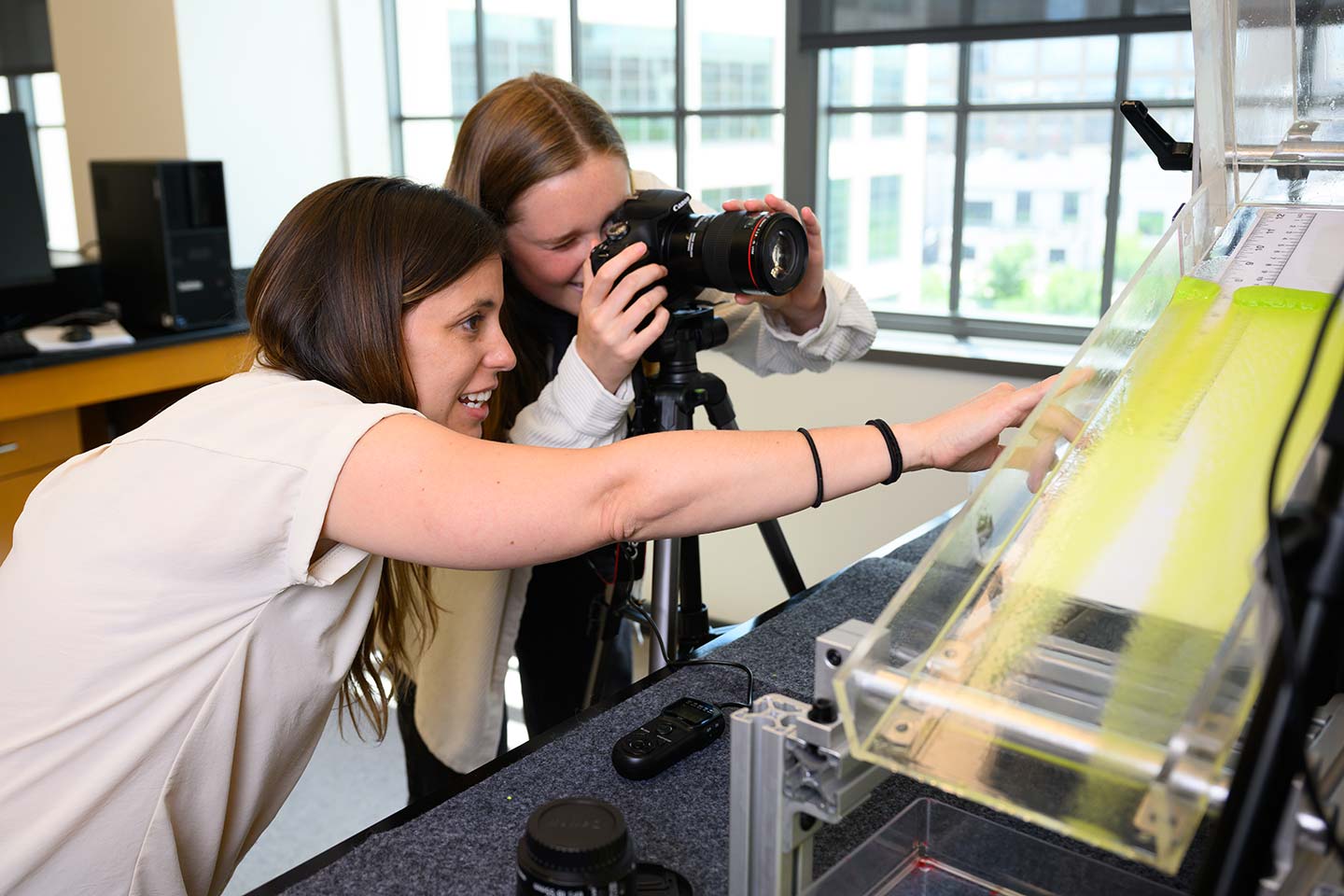
Applied Mathematics Degree
Bachelor of Science
Program Type:
Major
Career Path:
STEM (Mathematics)
Program Site:
College or School:
Why study Applied Mathematics?
Applied Mathematics is about turning math into a powerful tool for solving real-world problems while also developing new mathematical theories that expand the boundaries of human knowledge. It combines theory, computing, and modeling to make sense of complex systems across science, engineering, technology, and beyond.
- Versatility: The same math that explains how neurons fire can also be used to study stock markets, epidemics, or communication networks.
- Problem-Solving: You’ll learn how to break down tough problems, build models, and find solutions — skills that are in high demand everywhere.
- Interdisciplinarity: Applied math connects with physics, biology, data science, computer science, and engineering, giving you the chance to collaborate across fields.
- Career Readiness: With strong analytical and computational skills, you’ll be prepared for careers in research, finance, tech, consulting, government, and more.
- Student Research Excellence: Our students have been recognized nationally—earning six Goldwater Scholarships, four National Science Foundation Graduate Research Fellowships, and numerous other awards for their research.
In short, studying applied mathematics gives you a toolkit for understanding the world and tackling some of the biggest challenges of the 21st century. Our Applied Mathematics B.S. degree will prepare you to make an impact wherever your interests take you.
What classes would I take?
Our model and curriculum educate the whole person and often help students discover interests they had never previously discovered. Students generally take 100-200 level courses during their first year of college, while registering for higher level courses as upperclassmen.
Sample courses* that you will take as an Applied Mathematics student include:
100-200 level
- Calculus with Analytic Geometry II
- Multivariable Calculus
- Discrete Mathematics
- Linear Algebra I and II
- Ordinary Differential Equation
300 level
- Introductory Real Analysis I
- Introduction to Mathematical Modeling
- Introduction to Fluid Dynamics
- Numerical Linear Algebra
- Partial Differential Equations
- Complex Analysis
* Course availability and offerings can change at any time. Refer to the Academic Bulletin to view all major requirements.
What kind of experience will I gain?
As an Applied Mathematics major, you’ll gain a mix of theoretical knowledge and hands-on experience. You’ll learn how to model real-world problems, use computational tools like Python and MATLAB, and analyze data to draw meaningful conclusions.
Through projects, research opportunities, and interdisciplinary coursework, you’ll practice applying math to areas such as physics, biology, data science, and finance. Along the way, you’ll sharpen your problem-solving, analytical, and communication skills—the kind of transferable tools that prepare you for research, industry, and graduate study.
Students in this program will develop the following skills:
- Mathematical modeling
- Computational proficiency
- Data analysis
- Problem solving
- Analytical thinking
- Interdisciplinary collaboration
- Quantitative communication
- Research methodology
- Adaptability
- Presentation and professional writing skills
Are there extracurricular activities?
Joining a club or organization is a great way to get involved and do more with your major. Our Applied Mathematics students participate in the following programs:
- Association for Women in Mathematics
- Math Club
- Budapest semester in mathematics
- National Science Foundation Research Experiences for Undergraduates
- Interdisciplinary Contest in Modeling
- Baseball Analytics Program
- WFU Fluids Dynamics Lab
What kind of job can I get?
Applied Mathematics graduates at Wake Forest pursue diverse and impactful careers. Many continue their education in Ph.D. programs in applied mathematics, mathematics, physics, applied physics, medical physics, industrial engineering, economics, and related interdisciplinary fields at top universities such as Stanford, MIT, Cornell, Brown, Northwestern, UC San Diego, and Duke. Others pursue master’s degrees in data science, computer science, business analytics, engineering management, financial mathematics, healthcare management, and computational finance.
On the professional side, graduates have immediately launched careers in government, nonprofits, and industry with job titles including:
- Software engineer
- Data engineer
- Data analyst
- Consultant
- Technical solution engineer
- Digital marketing
- Environmental education
- Government contractor
- Research Engineer
Related Programs
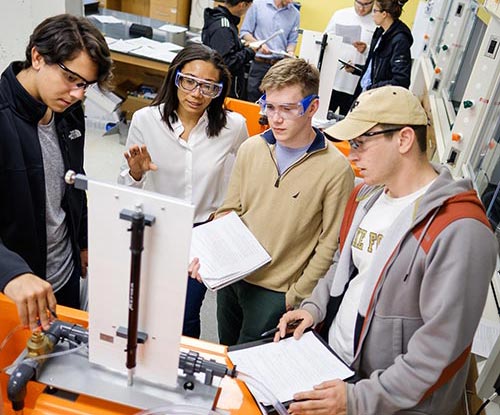
Majors & Minors
Choose from more than 50 majors and over 60 minors to find your perfect fit.

Life at Wake
Take a moment to explore all the student experiences that make Wake Forest unique.
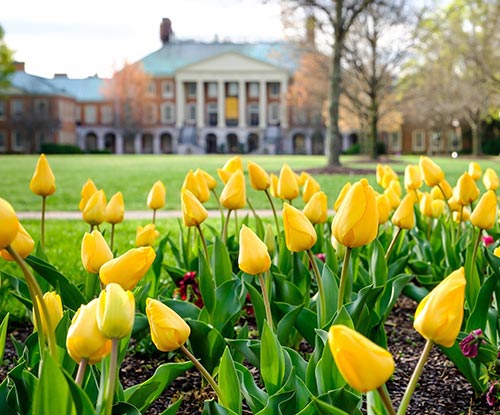
Virtual Tour
Can’t make it for a visit? No problem! Let us show you around campus virtually.
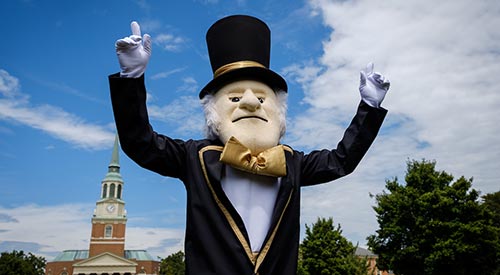
Keep in Touch
Let us know you’re interested in Wake Forest and we’ll do the rest.
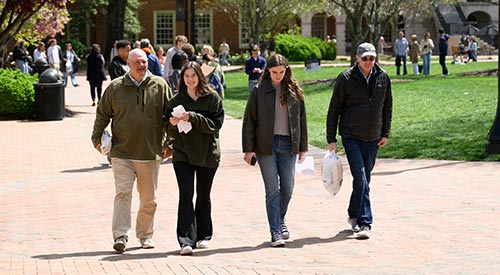
Visit Campus
You truly can’t appreciate the beauty of our campus until you experience it for yourself.
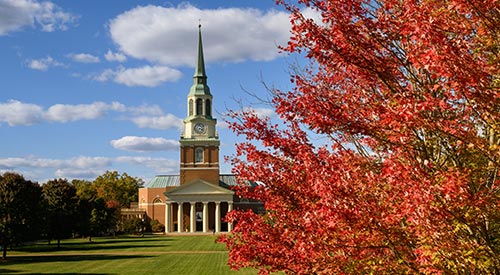
Apply
Want to be considered for our next class of Demon Deacons? Here’s how to get started.
